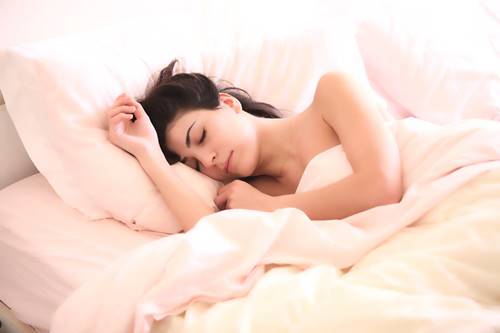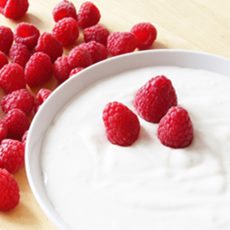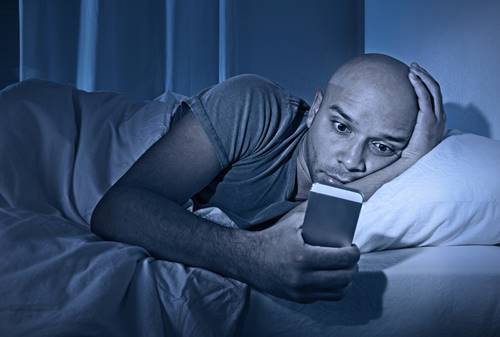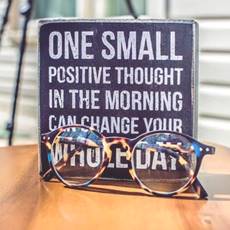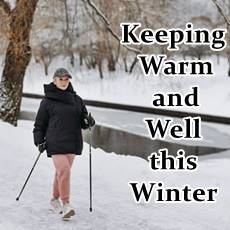Tips for Sleeping Better
Simple and natural ways to get a Good Night's Sleep
Fact Checked
×All the content published in our website is fact checked to validate its accuracy.
Visit our guidelines web page to learn more about our strict processes regarding how we review our content's sources: reliable and reputable journals, media websites, universities, colleges, organizations, and professionals.
Our articles are based on scientific evidence, and the references are included in its footnotes, which are clickable links to sound scientific papers.
First published: 09.Nov.2018
Overview
The pressures of modern life mean that you tend to sleep less, its quality is worse, and this affects your overall health and wellbeing.
Today's article looks into the benefits of sleep, the risks of poor sleep, and gives a series of tips on how to sleep better naturally (without pills), and as usual, all of this is backed by science and facts.
References and Further Reading
(1) Conor J Wild, Emily S Nichols, Michael E Battista, Bobby Stojanoski, Adrian M Owen. (2018). Dissociable effects of self-reported daily sleep duration on high-level cognitive abilities. Sleep, 2018; DOI: 10.1093/sleep/zsy182
(2) Jonathan Cedernaes et al. (2018). Acute sleep loss results in tissue-specific alterations in genome-wide DNA methylation state and metabolic fuel utilization in humans. Science Advances 22 Aug 2018: Vol. 4:8, eaar8590 DOI: 10.1126/sciadv.aar8590
(3) Alvarez GG, Ayas NT, (2004). The impact of daily sleep duration on health: a review of the literature. Prog Cardiovasc Nurs. 2004 Spring;19(2):56-9.
(4) Consensus Conference Panel, Nathaniel F. Watson, et al. (2015). Recommended Amount of Sleep for a Healthy Adult: A Joint Consensus Statement of the American Academy of Sleep Medicine and Sleep Research Society. Sleep. 2015 Jun 1; 38(6): 843-844. 2015 Jun 1. doi: 10.5665/sleep.4716
(5) Rachel R. Markwald, et al. (2013). Impact of insufficient sleep on total daily energy expenditure, food intake, and weight gain. Proc Natl Acad Sci U S A. 2013 Apr 2; 110(14): 5695-5700. 2013 Mar 11. doi: [10.1073/pnas.1216951110]
(6) Thomson CA et al. (2012). Relationship between sleep quality and quantity and weight loss in women participating in a weight-loss intervention trial. Obesity (Silver Spring). 2012 Jul;20(7):1419-25. doi: 10.1038/oby.2012.62. Epub 2012 Mar 8
(7) European Society of Cardiology, (2018). Sleeping five hours or less a night associated with doubled risk of cardiovascular disease. 26 August 2018
(8) Owens JF et al. (2010). Napping, nighttime sleep, and cardiovascular risk factors in mid-life adults. J Clin Sleep Med 2010;6(4):330-335
(9) Janna Mantua and Rebecca M. C. Spencer, (2017). Exploring the nap paradox: are mid-day sleep bouts a friend or foe?. Sleep Med. 2017 Sep; 37: 88-97. 2017 Mar 6. doi: [10.1016/j.sleep.2017.01.019]
(10) Hill VM, O'Connor RM, Sissoko GB, Irobunda IS, Leong S, Canman JC, et al. (2018). A bidirectional relationship between sleep and oxidative stress in Drosophila. PLoS Biol 16(7): e2005206. https://doi.org/10.1371/journal.pbio.2005206
(11) Robert S. Thompson et al. (2017). Dietary Prebiotics and Bioactive Milk Fractions Improve NREM Sleep, Enhance REM Sleep Rebound and Attenuate the Stress-Induced Decrease in Diurnal Temperature and Gut Microbial Alpha Diversity. Front. Behav. Neurosci., 10 January 2017, https://doi.org/10.3389/fnbeh.2016.00240
(12) Yawen Zeng et al. (2014). Strategies of Functional Foods Promote Sleep in Human Being. Curr Signal Transduct Ther. 2014 Dec; 9(3): 148-155. 2014 Dec. doi: 10.2174/1574362410666150205165504
(13) Marie-Pierre St-Onge, Anja Mikic, and Cara E Pietrolungo, (2016). Effects of Diet on Sleep Quality. Adv Nutr. 2016 Sep; 7(5): 938-949. 2016 Sep 7. doi: [10.3945/an.116.012336]
(14) Jansen EC, et al. (2020). Healthier dietary patterns are associated with better sleep quality among midlife Mexican women. J Clin Sleep Med. 2020 Aug 15;16(8):1321-1330. doi: 10.5664/jcsm.8506.
(15) Chul-Hyun Cho, et al. (2018). Impact of Exposure to Dim Light at Night on Sleep in Female and Comparison with Male Subjects. Psychiatry Investig. 2018 May; 15(5): 520-530. 2018 Mar 19. doi: [10.30773/pi.2018.03.17]
(16) American Academy of Sleep Medicine. Light exposure during sleep may increase insulin resistance: Chronic overnight light exposure could have long-term effects on metabolic function. ScienceDaily. ScienceDaily, 4 June 2018
(17) Horne JA, Reid AJ., (1985). Night-time sleep EEG changes following body heating in a warm bath. Electroencephalogr Clin Neurophysiol. 1985 Feb;60(2):154-7
(18) Christopher E. Kline, (2014). The bidirectional relationship between exercise and sleep: Implications for exercise adherence and sleep improvement. Am J Lifestyle Med. 2014 Nov-Dec; 8(6): 375-379, doi: [10.1177/1559827614544437]
(19) NIH National Institute on Aging, A Good Night's Sleep. Accessed Dec. 5, 2020.
(20) National Sleep Foundation, Healthy Sleep Tips. Updated July 30, 2020. Accessed Dec. 5, 2020.
(21) Anderson AR, Ostermiller L, Lastrapes M, Hales L., (2024). Does sunlight exposure predict next-night sleep? A daily diary study among U.S. adults.. J Health Psychol. 2024 Jul 30:13591053241262643. doi: 10.1177/13591053241262643. Epub ahead of print. PMID: 39077837.
About this Article
Tips to sleep better, A. Whittall
©2018 Fit-and-Well.com, First Published: 09.Nov.2018. Updated. 31.Oct.2024. Next review: Nov. 01, 2027 https://www.fit-and-well.com/wellness/sleep.html
Tags: sleep, antioxidants, exercise

